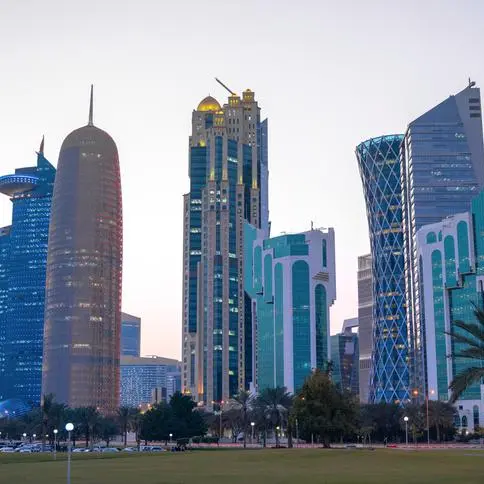PHOTO
Hotel room rates are expected to increase across the UAE and Saudi Arabia in 2024, with a near 10% price rise forecasted for Dubai, according to a new study.
Findings of the Hotel Monitor 2024 report by the American Express Global Business Travel (Amex GBT) reveal the impact of new business travel patterns on hotel rooms has triggered a projected rise of nearly 17.5% in some cities, where supply is tight, coupled with local conditions that have caused an uptick in the average cost of a room.
In Dubai, hotel room rates are expected to rise by 9.6% next year, according to the report, with Abu Dhabi following close behind with a 7.1% projected hike. The percentage increase in Dubai is steeper than those projected for gateway destinations such as London (9.1%), Berlin (9.4%), and Shanghai (8.4%).
Elsewhere, Saudi Arabia, which has the biggest hotel pipeline in the Middle East region, is expected to witness a 4.6% rise in room rates in both, Jeddah, and Riyadh, which are key cities to have witnessed a surge in business travel.
In the wider Middle East and North Africa region, Cairo has recorded the highest uptick in room rates, which are projected to rise by 14.6% next year. Globally, the highest uptick is being anticipated in Buenos Aires with a 17.5% rise in rates for the Argentinian city. Coming in second is Mumbai, at 15%, with Chennai close behind, at 14.6%, putting it on par with the Egyptian capital. The lowest hike is expected in Hong Kong, at 1.9%.
Middle East forecast
The Hotel Monitor 2024 report, which forecasted hotel rate movement in more than 80 cities, suggests that the percentage rise next year will be in line with local inflation rates, following on the heels of large price jumps in 2022 and 2023 that were fuelled by a surge in ‘revenge tourism’ by leisure travellers post pandemic.
However, with the post-COVID-19 leisure surge now softening, according to insight by the B2B travel platform, hotels are now ready to engage with corporate customers to galvanise demand in that sector, which is rebounding at a more accelerated rate than earlier forecasted.
In August, findings of the 2023 GBTA Business Travel Index Outlook – Annual Global Report revealed business travel spending would surpass its pre-pandemic high of $1.4 trillion by 2024, boosted by an acceleration in the recovery process since COVID-19. Spending in this sector is expected to grow to nearly $1.8 trillion by 2027.
In 2022, global business travel spending rose 47% to $1.03 trillion, with the GBTA revealing in March that the Middle East and Africa region accounted for $23 billion or approximately 2.5% of overall spending within the sector.
The evolution of working culture towards more flexible, hybrid and remote models is also having a direct impact on business travel patterns, according to the Hotel Monitor 2024 report. An incremental lift in weekend corporate travel and a shift to fewer but longer business trips point to a growing trend of travellers combining business trips with leisure activities.
The shift in demand has also triggered a robust growth in the region’s hotel pipeline. According to US-based global hotel intelligence provider Lodging Econometrics, the Middle East opened 16 new hotels or 3,892 rooms in the first half of 2023 with another 93 new hotels or 21,306 rooms scheduled to open by year-end.
Lodging Econometrics expects new hotel openings to rise to 113 projects or 28,857 rooms in 2024, while 97 projects or 18,914 rooms are likely to open by the end of 2025.
The UAE, which has set a target of attracting 40 million visitors by 2030, announced earlier this year it plans to expand the number of hotel rooms to 250,000 during the same period.
(Reporting by Bindu Rai, editing by Daniel Luiz)





















